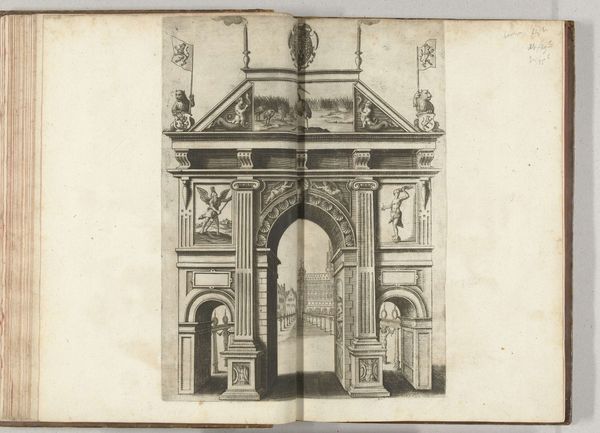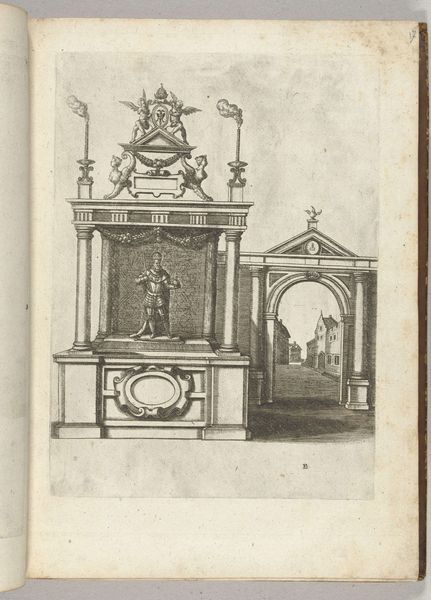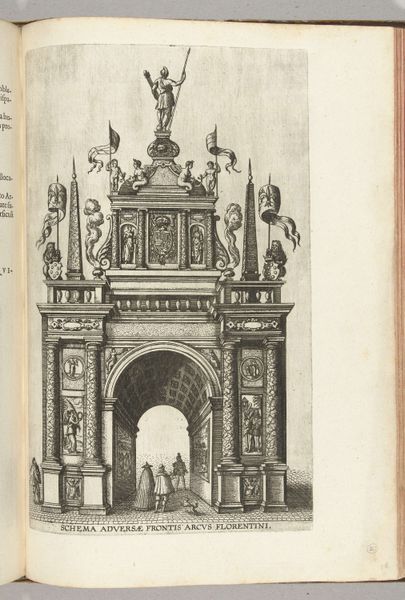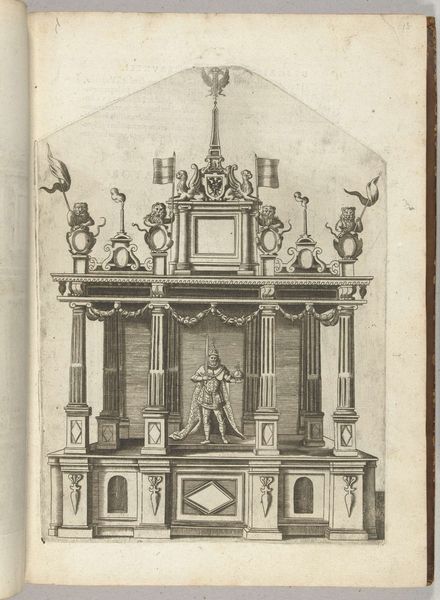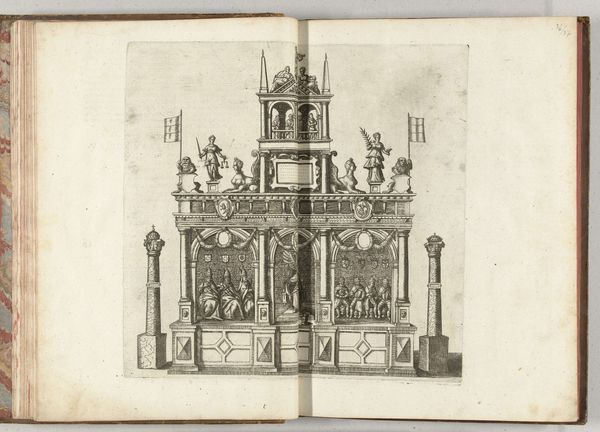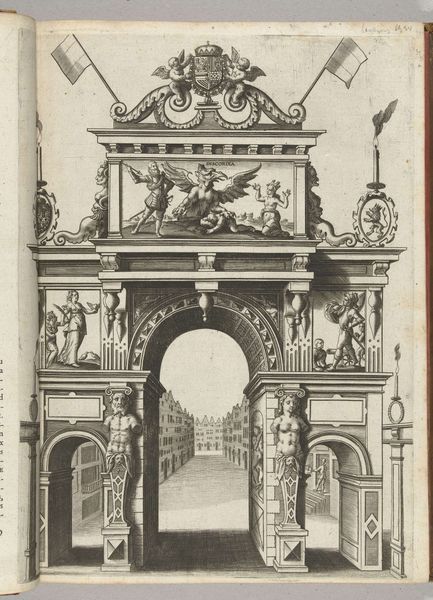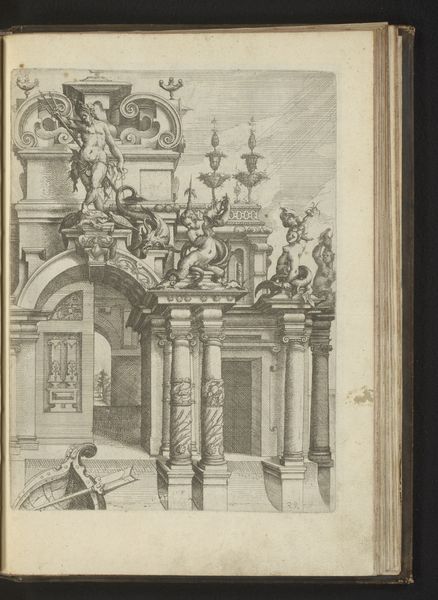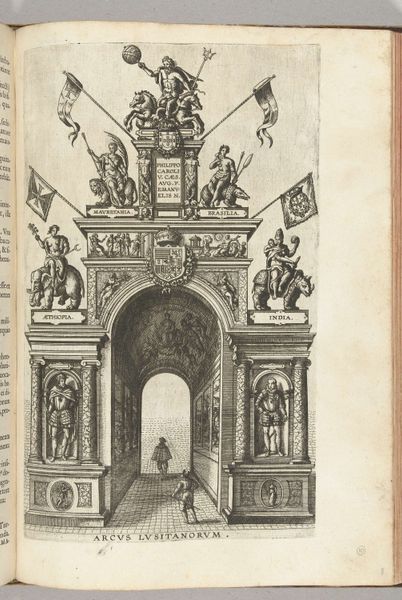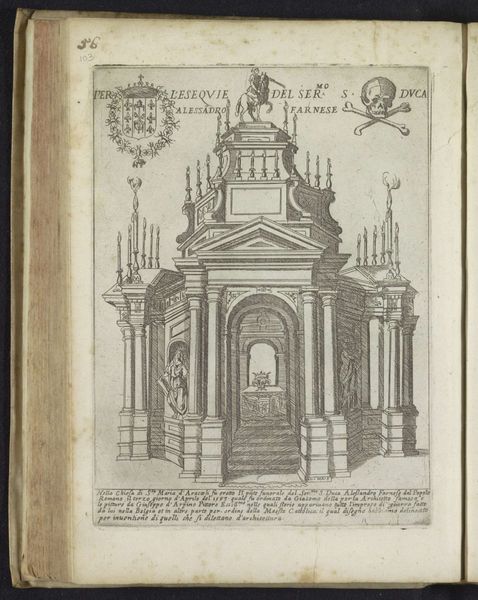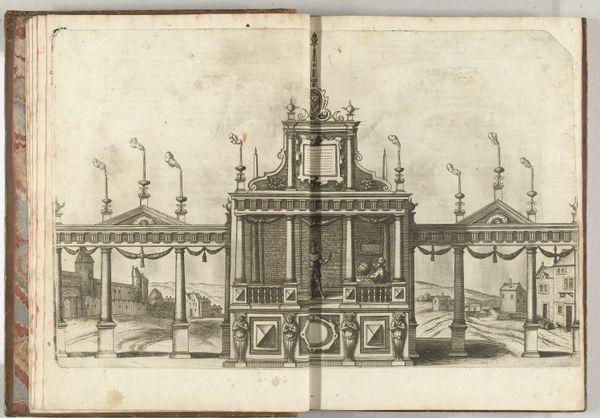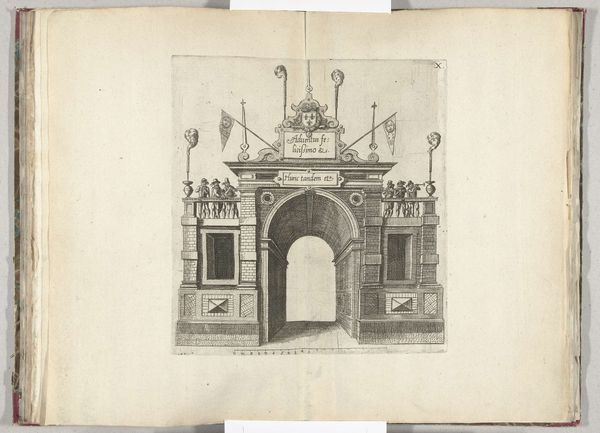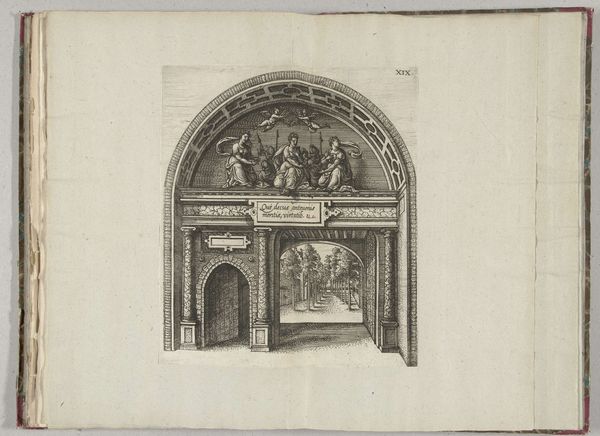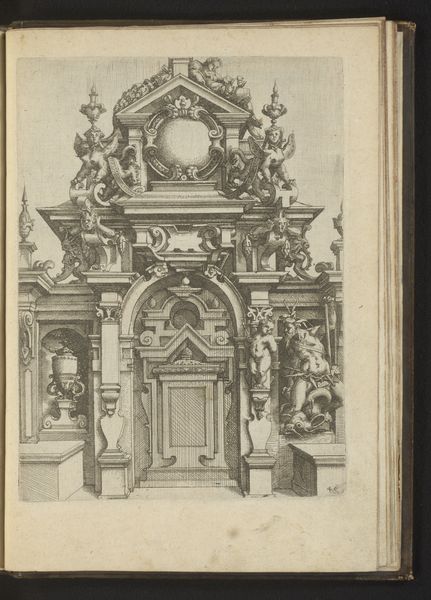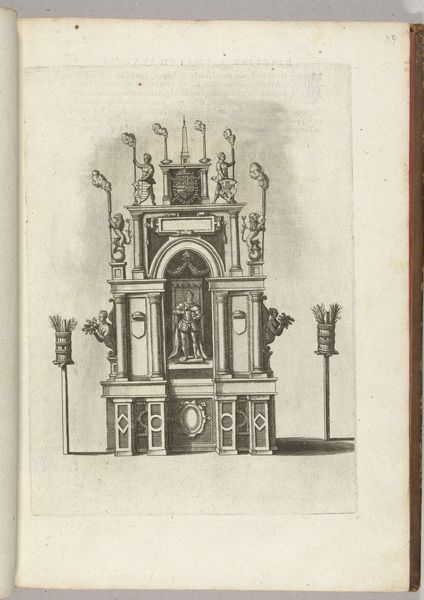
drawing, print, paper, ink, engraving, architecture
#
drawing
# print
#
mannerism
#
paper
#
ink
#
coloured pencil
#
cityscape
#
history-painting
#
engraving
#
architecture
Dimensions: height 335 mm, width 345 mm
Copyright: Rijks Museum: Open Domain
This print, made in 1594 by an anonymous artist, depicts Emperor Maximilian I and Maria of Burgundy. It's an engraving, meaning the artist would have used a tool called a burin to carve lines into a metal plate, likely copper. This painstaking process, requiring immense skill, would have been a highly specialized form of labor. The material qualities of the print – its crisp lines and tonal range from light to dark – are all products of this technique. The linear precision allows for an incredible level of detail, from the architectural elements to the figures of the Emperor and Maria. Prints like these played a crucial role in disseminating information and propaganda during the Renaissance. They were relatively inexpensive to produce, allowing for wide circulation. In this case, the print celebrates imperial power, connecting it to the burgeoning print industry. Consider the immense labor involved in producing even a single print like this. It challenges our understanding of art by emphasizing the social context of its making, and the blurred lines between craft, art, and industry.
Comments
No comments
Be the first to comment and join the conversation on the ultimate creative platform.
